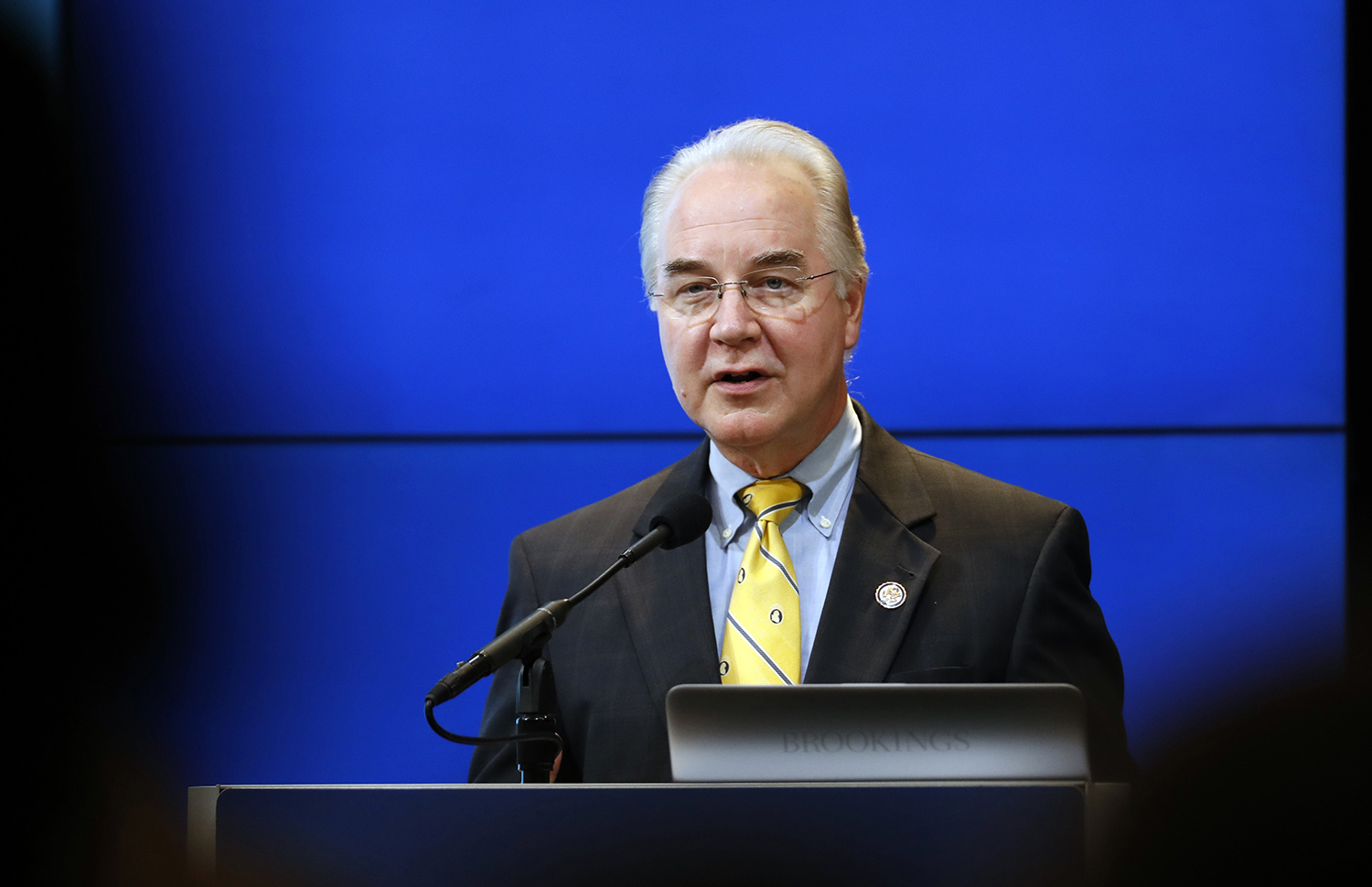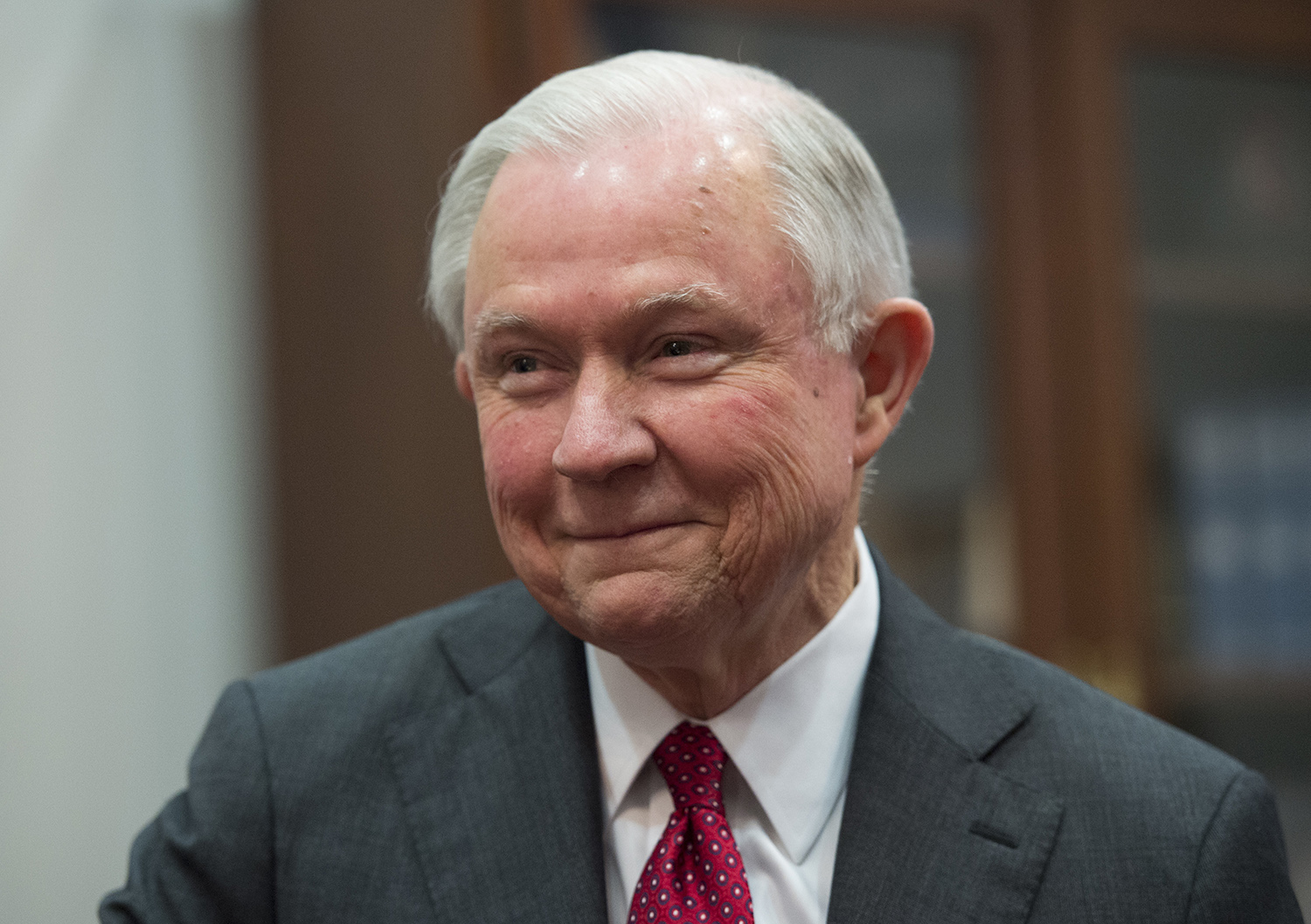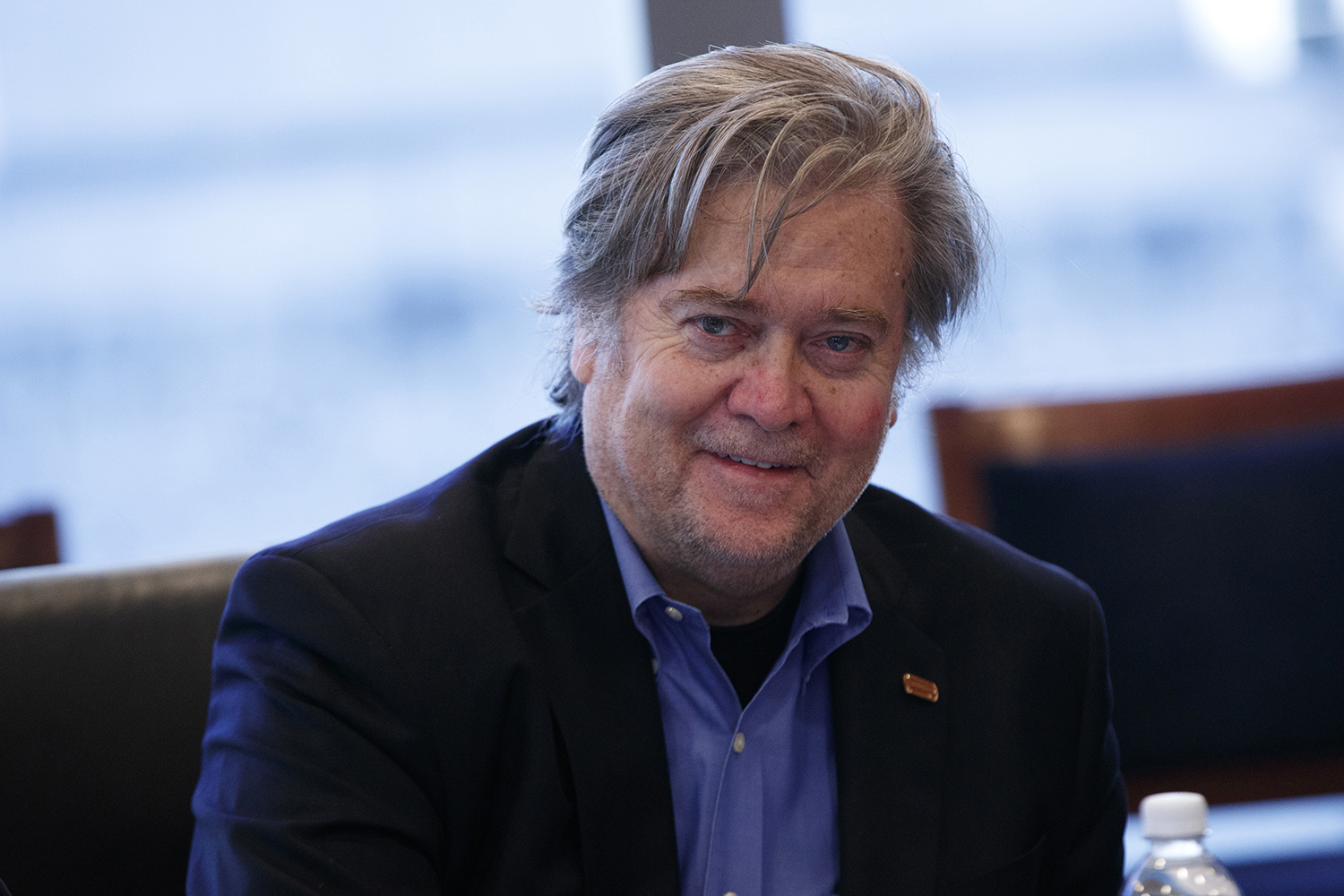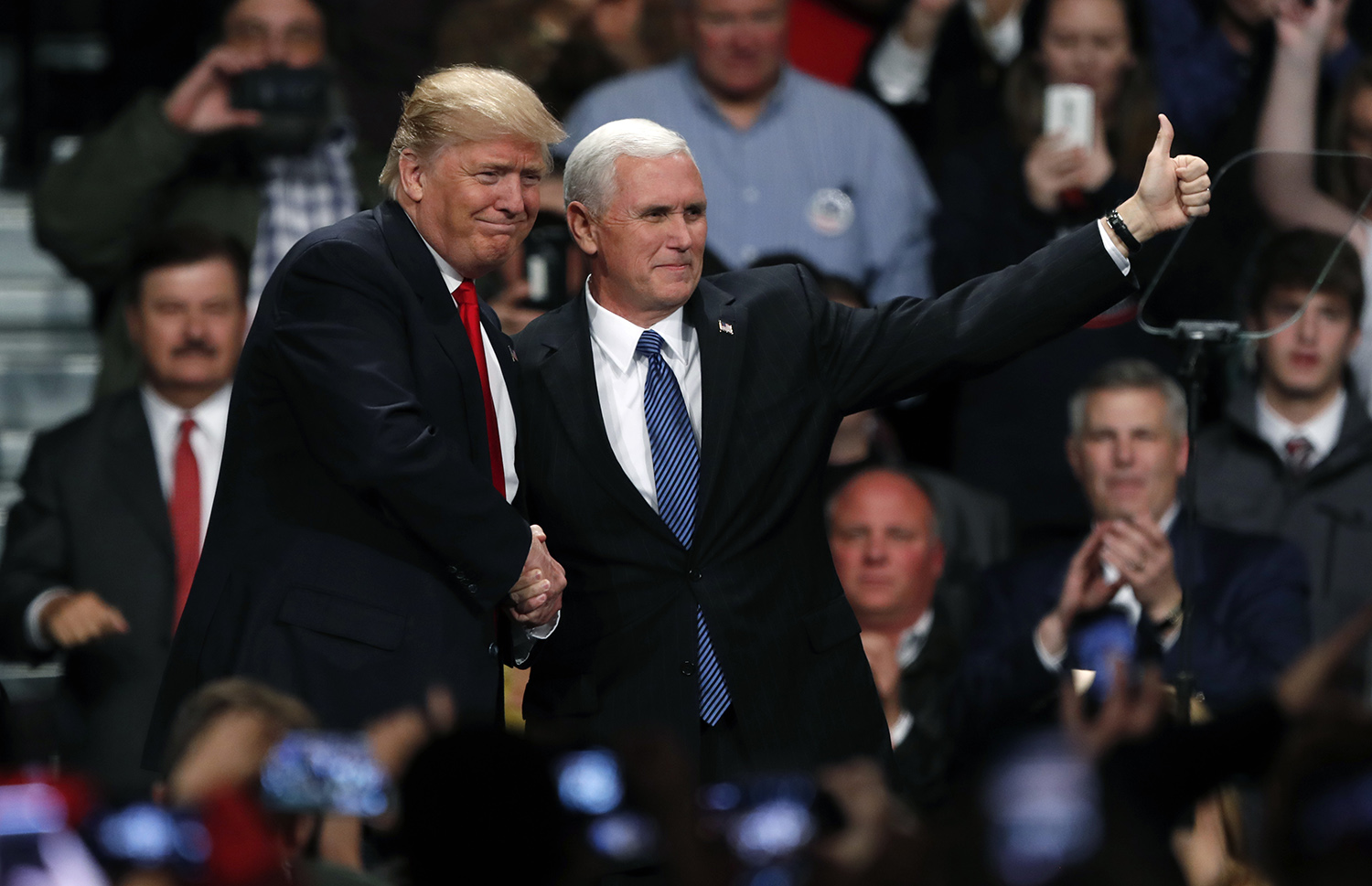President-elect Trump has thus far appointed a Cabinet so conservative it has surpassed expectations. Under ordinary circumstances, this would be no surprise. Trump will, after all, be a Republican president.
But these are not ordinary circumstances. Trump’s Republican detractors maintained he was no true conservative even after he won the nomination. Some continued to oppose him even during the general election. For his part, Trump remained selective in his affirmation of conservative orthodoxy throughout the campaign.
In particular, Trump rejected House Speaker Paul Ryan’s approach to entitlement reform. Calling the Iraq War a “disaster” and a “big, fat mistake,” he discarded former President George W. Bush’s foreign policy in favor of “America First.” Calling NAFTA the “worst trade deal ever signed,” he upended decades of Republican trade policy. President Clinton may have signed the agreement Trump panned, but President Reagan conceived it and President George H.W. Bush negotiated it.
So Trump might have been expected to shun movement conservatives in his executive branch appointments, carving out space only for early supporters. This hasn’t been the case.
For secretary of the Department of Health and Human Services, Trump has selected Rep. Tom Price, R-Ga., the architect of the main conservative Obamacare replacement proposal. Elaine Chao, Trump’s pick for transportation secretary, was considered a conservative standout running the Labor Department under Bush 43.
The president-elect chose the “Koch brothers’ congressman” Rep. Mike Pompeo, R-Kan., to direct the CIA, and popular conservative South Carolina Gov. Nikki Haley is his designated ambassador to the United Nations. Leading conservative education reformer Betsy DeVos has been nominated for secretary of education. These nominees’ conservatism isn’t the only thing that stands out. Haley was a tepid Trump supporter in the race against Hillary Clinton. DeVos never endorsed Trump at all. Anti-Trump conservatives tried unsuccessfully to draft retired Gen. James Mattis to run for president against the New York businessman. Trump asked Mattis to be his secretary of defense. Trump engaged in a long public flirtation with Mitt Romney, arguably the most important Never Trump Republican of them all.

Rep. Tom Price, the president-elect’s choice for secretary of HHS, is the architect of the main conservative Obamacare replacement proposal. (AP Photos)
“With malice toward none and charity toward all,” quipped a GOP strategist when asked about the overtures. The facetious reference to the line from the second inaugural address by the first Republican president, Abraham Lincoln, reflects a common sentiment among the party’s Trump skeptics: they may still have their doubts, but they have been pleasantly surprised by his willingness to reach out.
Others suggest it is less shocking in the context of Vice President-elect Mike Pence. Pence, who heads the transition team, had a big impact on personnel selection. Pence originally endorsed Ted Cruz over Trump during the primaries. Trump nevertheless picked him over several loyalists and early supporters. Republican sources believe Trump is happy with his decision and that his satisfaction with Pence has made him more willing to make similar appointments since winning the election.
All this raises the possibility that Trump will allow his conservative Cabinet officers to do their jobs and govern much more like a conventional Republican president than seemed likely during the campaign. This doesn’t please all his supporters. Syndicated columnist Ann Coulter, author of the book In Trump We Trust, complained that the president-elect’s nominees haven’t been different enough from what we could have expected from Jeb Bush.
“After Nikki Haley, I expect [Trump’s] next cabinet pick to be Obama,” Coulter said on Twitter earlier month. “Both used the State of the Union address this year to attack Trump.”
It would nevertheless be a mistake to conclude that Trump’s hasn’t left his distinctive imprint on personnel choices or the Republican Party. For one thing, he hasn’t sounded any less “Trumpian” since Election Day.
“We will be the administration that ended illegal immigration,” Trump vowed on the second stop of his tour thanking swing-state voters for their support. “We will construct a great border wall and dismantle the criminal cartels.”
That wasn’t all. “We will have two simple rules when it comes to rebuilding this country,” Trump said at this North Carolina event. “Buy American and hire American.”
On foreign policy and national defense, Trump pledged to “build up our military not as an act of aggression, but as an act of prevention. In short, we seek peace through strength.”

Sen. Jeff Sessions’ Senate colleagues are ready to break down along party lines in support or opposition to his nomination as the attorney general.
Many of Trump’s nominees are also on the same page, even those receiving strong conservative support. Consider the case of Sen. Jeff Sessions, R-Ala., the president-elect’s choice for attorney general.
Sessions’ Senate colleagues are ready to break down along party lines in support or opposition to his nomination. Conservative legal groups are rallying behind him, and the Judicial Crisis Network has already created a website advocating his confirmation in anticipation of a bruising fight.
The four-term Republican is a respected conservative. But he was also a proponent of the GOP moving toward a more populist and nationalist posture even before Trump won the party’s presidential nomination running on such a platform. His 2014 immigration handbook for his Senate colleagues was a blueprint for the plan Trump laid out during the campaign. On trade, Sessions rejected the Trans-Pacific Partnership.
“What we need now is immigration moderation: slowing the pace of new arrivals so that wages can rise, welfare rolls can shrink and the forces of assimilation can knit us all more closely together,” Sessions wrote in the Washington Post in 2015. In making this argument, he expressly pitted himself against business and financial interests frequently associated with his own party.
“[H]igh immigration rates help the financial elite (and the political elite who receive their contributions) by keeping wages down and profits up,” Sessions added. “For them, what’s not to like?”
This sounds a lot like Trump, who has been advised by former Sessions staffers on this issue. “We will ask Congress to reform our visas and immigration programs to protect jobs and wages for American workers,” Trump said at a post-election rally.
The Alabama Republican’s arguments on immigration and trade were amplified by parts of the conservative media, chief among them commentator Laura Ingraham and Stephen Bannon’s Breitbart News. Bannon is already a top political strategist on the incoming White House staff, Ingraham is believed to be in the running to become the new president’s press secretary.

Stephen Bannon has argued that conservatives must embrace populism and nationalism.
Bannon has also argued conservatives must embrace populism and nationalism. He has fought Ryan’s market-oriented conservatism, describing the Republican leadership in vulgar terms and publishing Breitbart stories that backed an unsuccessful primary challenge in the speaker’s Wisconsin congressional district.
The tone of Breitbart’s coverage and Bannon’s statement that the website was a “platform for the alt-right,” a self-description adopted by racists and anti-Semites, has made his hiring especially controversial. (Bannon says he defines the term alt-right differently and has “zero tolerance” for bigots). But it is also a clear link between Trump and a kind of conservative politics that more closely resembles some of the nationalist parties of Europe than recent American conservatism.
There is also Trump’s choice for secretary of commerce, Wilbur Ross, who is Coulter-approved. Like Trump, Ross is a billionaire. Also like Trump, he believes “bad trade deals” are hurting American manufacturing and allowing foreign countries to take advantage of us. He believes bilateral trade pacts are preferable to multilateral agreements.
“Believe it or not, Mexico has better treaties with the rest of the world than the United States has,” Ross told CNBC. “We’re going to fix that.” He dismisses protectionism as a “pejorative term” and says that tariffs would only be a last resort to gain leverage in seeking better deals.
Trump’s nominee for secretary of the Treasury Department, Steven Mnuchin, is also a believer in bilateral trade agreements. The former Goldman Sachs executive will additionally be a key player in synthesizing Trump’s tough trade stance, which is not shared by Republican congressional leaders, and the administration’s more conventionally conservative positions on taxes and regulations.
Trump is in effect setting up a coalition government. He is incorporating familiar conservatives and new nationalists. His appointees are politicians, Republican bureaucrats, businessmen such as Ross and Mnuchin, generals such as Mattis, national security adviser pick Michael Flynn and Homeland Security pick John Kelly, establishment figures such as incoming White House Chief of Staff Reince Preibus and outsiders such as Bannon and probable secretary of Housing and Urban Development Ben Carson.
When Reagan won the presidency in 1980, there were not yet enough movement conservatives with relevant government experience for him to fill the vast federal bureaucracy with “Reaganites” alone. So he brought in moderate Republicans, including some who were loyal to his vice president and onetime primary opponent George H.W. Bush.
Trump finds himself in a similar situation, without as fully formed a personal political philosophy or as established a movement behind him. (Reagan was elected president 16 years after Barry Goldwater was the Republican nominee, 25 years after William F. Buckley, Jr. founded National Review, both seminal events in modern American conservatism.) Pence may be reprising the role of Bush 41, mainline conservatives doing the work in the absence of Trumpian populists.

President-elect Trump and Vice President-elect Mike Pence negotiated a deal with Carrier to keep roughly 1,000 jobs in Indiana rather than moving them to Mexico.
And just as Reagan transformed the Republican Party, there is an opportunity for Trump to do the same, even with a divided staff. Like Bush 41’s embrace of the supply-side theory he once derided as “voodoo economics,” onetime free trader Pence said of the offshoring of American jobs, “the free market has been sorting it out and America’s been losing.”
That came after Trump and Pence negotiated a deal with the heating, ventilation and air conditioning manufacturer Carrier to keep roughly 1,000 jobs in Indiana rather than moving them to Mexico as originally planned. Also, after that deal was announced came evidence Trump was already having an impact on the GOP’s rank-and-file voters.
Eighty-seven percent of self-identified Republicans supported the Carrier agreement. Sixty-nine percent of Republicans agreed it was appropriate for the president and vice president to negotiate directly with private businesses; 78 percent backed incentives for individual companies to protect jobs. A YouGov/Economist poll similarly found that 73 percent of Republicans and 70 percent of conservatives support tariffs or other taxes on U.S. companies that move jobs overseas.
In each of those cases, Republicans were more likely to back Trump’s favored economic interventions than Democrats or independents.
That doesn’t mean that there won’t be fights ahead. Trump is asking for a $1 trillion infrastructure spending plan just eight years after Republicans almost unanimously opposed President Obama’s stimulus package with a similar price tag. Some of the resistance could come from inside Trump’s own administration, as the team of rivals begins to spar.
But that team is also Trump’s coalition of the willing, and a broad cross-section of the Republican Party now seems willing and able to serve in his administration.

